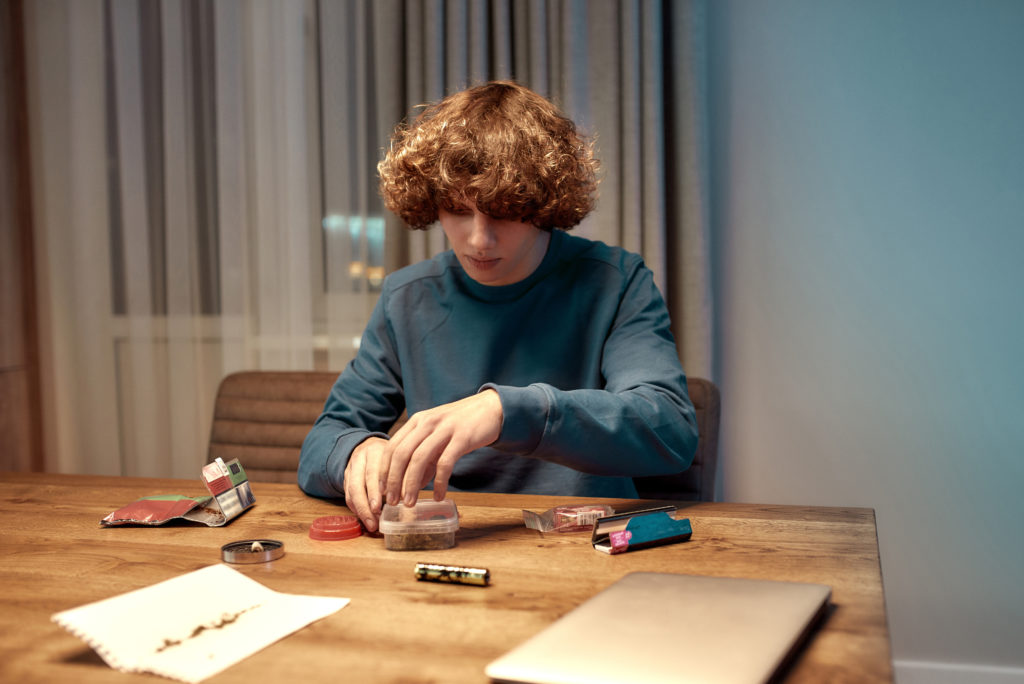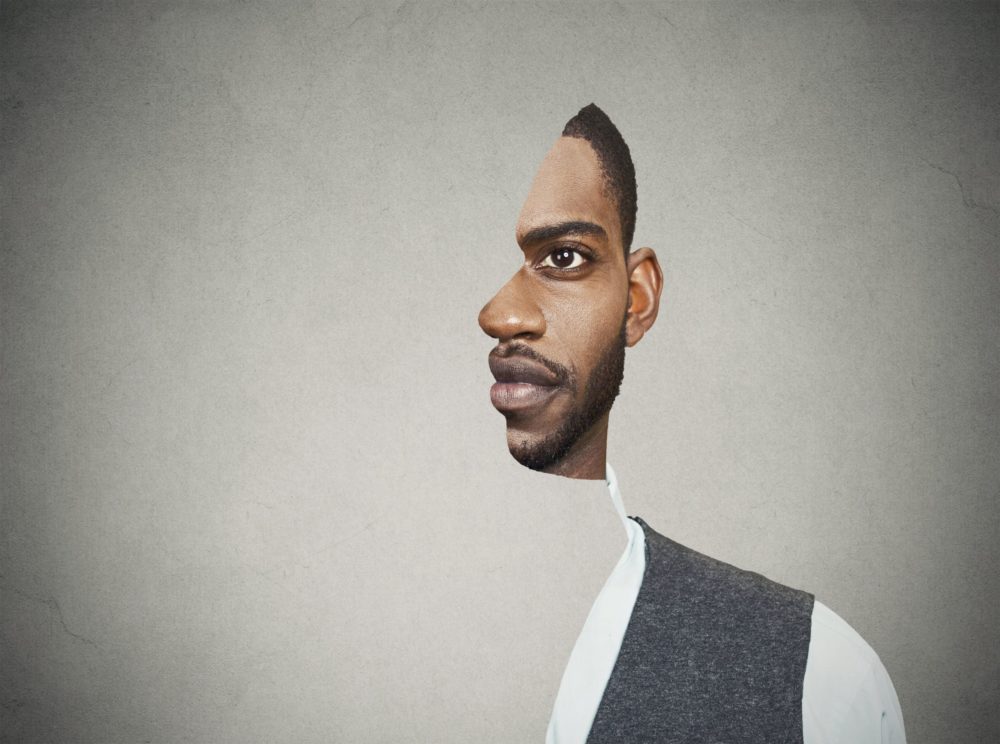As many as 2% of people nationwide may struggle with depersonalization disorder. Depersonalization is characterized by feeling disconnected from your own thoughts, emotions, and physical sensations. While there’s no definitive cause of the condition, and the symptoms can be sort of hard to describe, some experts believe that marijuana use and other hallucinogenic drugs may cause depersonalization to develop.
While it’s not clear how exactly marijuana might lead to depersonalization disorder, some theories suggest that the drug’s effects on the brain and the psychoactive ingredient THC can lead to episodes of depersonalization. In addition, Marijuana can also worsen anxiety disorders, which often co-occur with depersonalization disorder.
If you’re struggling with symptoms of depersonalization, it’s important to seek professional help. Therapists who specialize in treating anxiety and other mental health conditions can help you manage your symptoms and find relief.
What is Depersonalization Disorder?
Of all mental health disorders, perhaps none is more confusing than depersonalization. Depersonalization disorder (DPD) is characterized by persistent or recurrent episodes of depersonalization. People with DPD feel detached from their own thoughts, emotions, and physical sensations. They may feel like they are watching themselves from outside their bodies or like they are living in a dream.
Depersonalization symptoms might be confused with derealization, which is characterized by feeling detached from your surroundings. While both disorders can cause a sense of detachment, people with depersonalization disorder focus on their own selves rather than their surroundings. In addition, derealization might make someone feel as if their reality is distorted, or their surroundings are unreal. However, depersonalization symptoms often focus on the body, and can include:
- Feelings of disconnectedness from your thoughts
- Feelings of disconnectedness from your emotions
- Physical sensations that feel unreal or detached (e.g., feeling like you’re floating)
These symptoms can be extremely distressing and make it difficult to function in day-to-day life. Depersonalization disorder is relatively rare, affecting an estimated 2% of the population. However, just because it’s rare doesn’t mean it’s not real or valid. If you’re struggling with depersonalization, it’s important to seek professional help.
What Causes Depersonalization Disorder?
There is no known definitive cause of depersonalization disorder. However, some experts believe that past severe traumatic events might contribute to its development.
Traumatic events can include:
- Physical abuse
- Sexual abuse
- Emotional abuse
- Witnessing violence
- Being in a car accident
- Experiencing a natural disaster
- Experiencing combat (such as being in a war zone)
Any of these events can lead to post-traumatic stress disorder (PTSD), which is often comorbid with depersonalization disorder. In addition, people who have PTSD are more likely to self-medicate with drugs or alcohol like cannabis. Unfortunately, cannabis use can worsen anxiety and lead to additional episodes of depersonalization.
It’s also worth noting that cannabis use might not directly cause depersonalization disorder, but it can certainly trigger symptoms in people who are already predisposed to the condition.

How Cannabis Worsens Psychiatric Disorders
While many people might think that using cannabis can help relieve symptoms of depersonalization, the opposite is often true. Cannabis use can actually worsen anxiety and other mental health conditions.
Cannabis use can lead to:
- Anxiety
- Paranoia
- Psychotic symptoms
- Hallucinations
- Delusions
In addition, people who have cannabis use disorder (CUD) are more likely to experience psychiatric symptoms, including depersonalization and derealization. Cannabis use disorder is a real and legitimate diagnosis. It’s characterized by a pattern of problematic cannabis use that leads to significant impairment or distress.
If you’re struggling with CUD, it’s important to seek professional help. Treatment for CUD typically includes some combination of therapy, support groups, and medication.
Cannabis and Depersonalization Disorder
If you have depersonalization disorder, it’s important to avoid using cannabis. Derealization, dissociation, and depersonalization from weed are not uncommon, even when a marijuana user isn’t high. Weed can worsen your symptoms and make it difficult to live a normal, productive life. In addition, people who have depersonalization disorder are more likely to develop CUD and episodes of derealization while using cannabis.
Studies showed that there are many risk factors that can lead to marijuana-induced depersonalization.
Such risk factors, as stated in the study, include:
- Adolescent age
- Male gender
- High-potency cannabis use
- Frequent cannabis use
- Cannabis use after trauma exposure
- Cannabis use under acute distress
- Sudden withdrawal from regular cannabis use
- Experiences of panic attacks or depersonalization or derealization during intoxication
- History of depersonalization or derealization symptoms
- History of cannabis-induced depersonalization-derealization disorder
- History of acute anxiety or panic attacks
- History of obsessive thinking
- History of sociophobic or avoidant behavior
- Family history of depersonalization-derealization disorder
- Family history of anxiety disorders or panic attacks
With so many risk factors, it’s easy to see how even minimal cannabis use can be a risk for people who have depersonalization disorder. Unfortunately, even people who have used Marijuana between 100 to 500 times can be affected by derealization. For these people, negative life stressors, such as divorce or job loss, can cause an exacerbation of their symptoms.

Anxiety and Cannabis
As mentioned earlier, cannabis can worsen anxiety in people who have a sensitivity to THC or who use high-potency cannabis. Cannabis use can also lead to the development of anxiety disorders, such as panic disorder and social anxiety disorder.
People who have anxiety disorders are more likely to experience symptoms of depersonalization. To understand why this is, it’s important to understand how anxiety and depersonalization are linked.
Anxiety is characterized by a feeling of worry, tension, or fear. These feelings can be so overwhelming that they interfere with your ability to function in daily life. When you have anxiety, you might avoid situations that make you feel anxious. This avoidance can lead to social isolation and problems at work or school.
Depersonalization is a symptom of anxiety that can make you feel detached from your body and the world around you. You might feel like you’re watching yourself from outside your body or like you’re in a dream. Depersonalization can be so severe that it leads to dissociative disorder, which is a more extreme form of this disorder.
When people disassociate or experience depersonalization, it is a defense mechanism that can protect against further psychological distress. In other words, it’s your brain’s way of coping with anxiety and the heightened fear you experience during a traumatic event or panic attack. In fact, many people who suffer from panic attacks might feel like they’re “losing control” or “going crazy.” This feeling is often caused by depersonalization.
Unfortunately, depersonalization can become a problem itself. When you’re constantly feeling detached from yourself and the world around you, it can be difficult to function in daily life. You might have trouble concentrating at work or school, and you might avoid social situations. The more you avoid, the more isolated you become. This isolation can lead to further anxiety and depersonalization.
How to Get Help for Depersonalization Disorder
If you think you might have depersonalization disorder, it’s important to seek professional help. The condition can be difficult to live with, but treatment can make a big difference.
Treatment for depersonalization disorder typically includes the following.
Psychotherapy
Psychotherapy is an important part of treatment for depersonalization disorder. Psychotherapy can help you understand your condition and learn how to manage your symptoms. A popular type of psychotherapy that can help you manage your depersonalization is CBT, or cognitive behavioral therapy. This type of therapy can help you identify and change the thought patterns that contribute to your depersonalization.
Depending on the type of anxiety disorder you have, psychotherapy might also include exposure therapy. Exposure therapy can help you confront your fears and learn how to manage your anxiety using coping skills.
Medication
While there is no specific medication for depersonalization disorder, medication can be used to treat the symptoms of anxiety or depression that might be contributing to your condition. Medications that are commonly used to treat anxiety might also help with depersonalization. These medications include SSRIs, or selective serotonin reuptake inhibitors, and SNRIs, or serotonin and norepinephrine reuptake inhibitors.
Self-care
In addition to professional treatment, there are things you can do at home to help manage your symptoms of depersonalization. Some self-care tips that might help include the following.
- Get regular exercise. Exercise can help reduce stress and improve your mood.
- Get enough sleep. Sleep deprivation can worsen symptoms of anxiety and depression.
- Eat a healthy diet. Eating nutritious foods can help you feel your best.
- Practice relaxation techniques. Relaxation techniques, such as meditation and yoga, can help you reduce stress.
- Limit your use of alcohol and drugs. Alcohol and drugs can worsen symptoms of anxiety and depression.
- Avoid caffeine. Caffeine can make anxiety worse.
- Connect with others. Isolation can make depersonalization worse. Connecting with friends and family can help you feel supported.
Substance Abuse Treatment
If you’re struggling with substance abuse, treatment can help you manage your symptoms of depersonalization. Substance abuse treatment can also help you avoid relapse and live a sober, healthy life without needing cannabis to help you cope.
Substance abuse treatment typically includes support groups, mental health treatment, and outpatient therapy if necessary. While cannabis might not lead to severe withdrawal symptoms, you can still experience withdrawal when you stop using it. Treatment can help you manage any withdrawal symptoms you might experience and avoid relapse.
Get Help With Depersonalization At Clear Behavioral Health
If you or someone you know is struggling with depersonalization from weed, don’t hesitate to reach out for help. Depersonalization can be debilitating, so it’s best to seek help from mental health experts. At Clear Behavioral Health, we’re dedicated to helping people struggling with addiction and mental health disorders. We offer a variety of treatment options, including depression and anxiety treatment, outpatient treatment, and more. Contact us today to learn more about our program and how we can help you or your loved one recover from depersonalization disorder.

